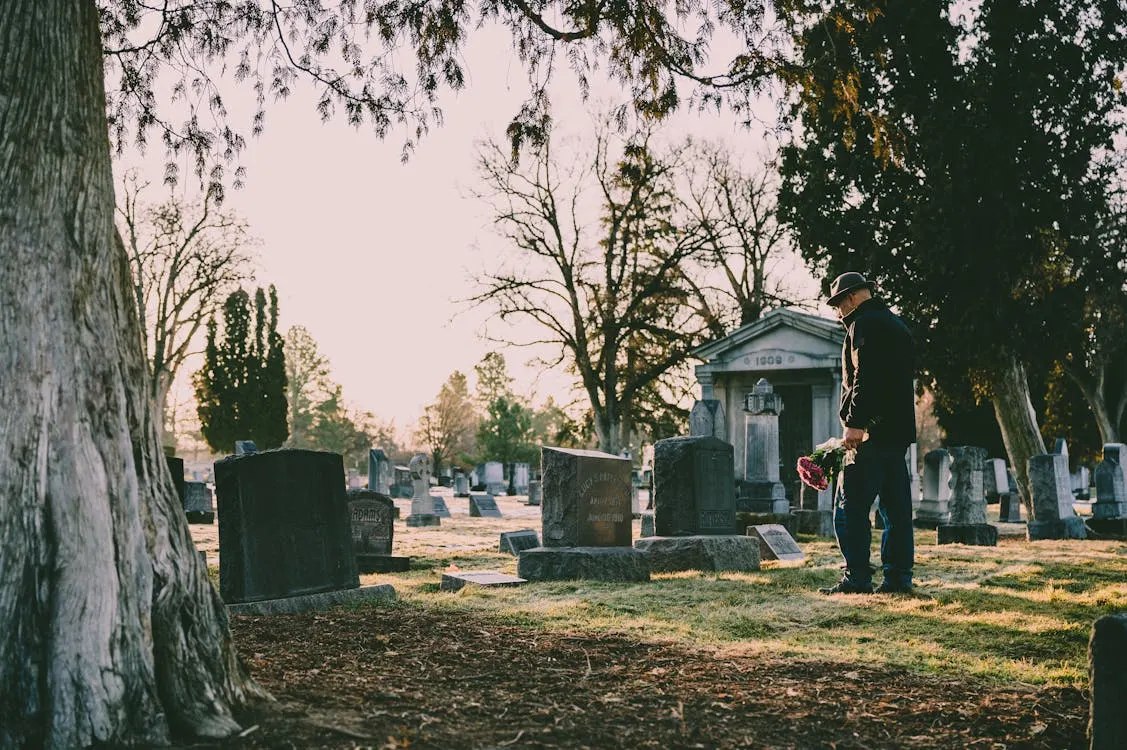The loss of a loved one is a point of major change in a person’s life. While the ripple effects it can leave, emotionally and psychologically, can be felt for years into the future, there are immediate needs that have to be dealt with. There are tips that can help you move on with life after loss, but here, we’re going to be looking at the practical steps of what you should be doing.
Whether a loved one has just passed and you don’t know what to do, or you’re in the process of planning things over the coming days and weeks, or even if you are expecting to have to say goodbye to a loved one in the near future, the below tips can help you ensure the right approach.

Registering the Death
When a loved one has passed, then the first action you should take is to ensure that their death is recorded. If you are with your loved one, then you can start this process by calling 911 If your loved one has professionals like a doctor with them at a hospital or the nursing home, then they should be able to do this for you.
The first legal requirement following a loved one’s passing is registering the death. In most jurisdictions, this needs to be completed within a few days. To do this, you’ll need a medical certificate of death, which is typically provided by a doctor or hospital. Some countries or states allow funeral directors to assist with the process. Once the death is registered, you’ll receive a death certificate, a vital document for the subsequent steps. If you don’t have a declaration of death, then you won’t be able to plan a funeral no handle their estate, so it’s vital you start with this first.
Notifying the Necessary Parties
Informing family members and close friends of the death is a delicate but necessary task. Begin with immediate family, followed by extended relatives and close companions. Consider assigning someone trustworthy to assist in this, particularly if the deceased had a wide circle. It’s important to keep in mind your own emotional state as you’re doing this, too. It can take quite a lot to break the news time after time, so delegating some of the burden can help you, as well.
If your loved one was employed, notify their employer so that workplace benefits, pensions, or other entitlements can be addressed. Inform their landlord, if applicable, or anyone else who might have a vested interest in their property or responsibilities. There are others that you should inform, but those can be handled later, so we will cover them later, as well.
Making Arrangements for the Body
Once the death has been registered, you’ll need to decide on the care of the body. This can involve choosing a funeral home or mortuary, arranging transportation, and deciding between cremation and burial. Some people leave explicit instructions about their preferences in their will or pre-paid funeral plans. If no such directions exist, the closest family members typically decide.
You might not be able to decide how your loved one is to be handled until, for instance, you uncover their will. But you can have their body taken away, for now, by a funeral planning service. This can give you some time to decide how to proceed.

Exploring Funeral and Burial Plans
Planning a funeral or memorial service is an opportunity to celebrate the life of your loved one. You’ll need to determine the type of service, whether it will be religious or secular, and any special requests they may have had. Typically, these ceremonies will be carried out according to the final wishes of a loved one. If you’re not able to find those, however, then you may want to talk to their closest family members and have a frank conversation about how the deceased would want you to proceed from there.
For burials, select a cemetery and plot, or if cremation is chosen, decide on an urn and location for the ashes. Some people prefer green burials, which focus on environmentally friendly practices. Costs can vary significantly, so it’s wise to seek quotes from multiple providers if finances are a concern. Finding a balance between what the family wants, what you believe the deceased would have wanted, and the financial impact of it is important, so having these conversations, while tough, is necessary.
Making Arrangements with Loved Ones
Funeral planning often involves collaboration with family and friends. Assigning roles, such as pallbearers, eulogists, or ushers, helps distribute responsibilities and ensures the service reflects the deceased’s relationships and legacy. You should talk to those who were close to your loved one at different stages of their life to make sure that people get the opportunity to contribute and say goodbye. It may be worth having a few others, like backup speakers, ready in case someone feels too emotional to do it in the moment.
Deciding on the final resting place for the remains is another essential task. Whether it’s a burial plot, a columbarium, or a specific scattering location, involving loved ones in this decision can help create a sense of closure for all parties involved.
Securing Their Property
Securing the deceased’s property is an important step to prevent theft or unauthorized access. This includes locking up their home, collecting spare keys, and notifying neighbors of their passing. It’s best to do this in conversation with the other closest loved ones to the deceased person so that you’re able to make it clear that you’re taking steps for the sake of the security of the estate. Otherwise, they may make assumptions that you are acting in self-interest. You may also want to itemize their assets as you go so that when you find the will and are handling probate (or it is being passed off to a named party), they have an accurate idea of the assets that have to be handled.
For digital assets, such as email accounts, social media profiles, and cloud storage, you may need passwords or proof of authority to access and deactivate them. In some cases, legal processes may be required to access digital content. Additionally, ensure that valuables, personal documents, and sentimental items are safely stored.

Getting Copies of the Death Certificate
Obtaining multiple certified copies of the death certificate is crucial for managing the deceased’s affairs. Many institutions, such as banks, insurance companies, and government agencies, require an official death certificate before they can process claims or close accounts. Requesting multiple copies upfront saves time and hassle later on, especially if your loved one had a variety of assets or accounts.
You are going to want about ten copies of the death certificate so that you’re able to provide them when requested by government agencies or other bodies. If you run out of copies, then you can request more from the vital statistics office in the state where your loved one died.
Finding the Will
Locating the deceased’s will is a critical step in understanding their final wishes and managing their estate. The last will and testament typically names an executor, the person responsible for ensuring the deceased’s instructions are carried out. Look for the document in secure places, such as a safety deposit box, a home safe, or with a lawyer.
If no will exists, the estate will be distributed according to local intestacy laws, which determine how assets are divided among surviving family members. In such cases, the court may appoint an administrator to handle the estate.
Carrying Out Their Will
If an executor has been unnamed by the will, then that is the person who will be responsible for overseeing the distribution of assets, settling debts, and ensuring the deceased’s wishes are honored. This involves submitting the will to probate, a legal process that validates the document and authorizes the executor to act on behalf of the estate. If no executor is named, then a probate court judge will likely name an administrator, who is usually the next of kin.
Unfortunately, carrying out a will doesn’t always go smoothly. If disputes arise, such as questions about the validity of the will or disagreements among beneficiaries, probate litigation may be necessary. Working with a probate lawyer can help navigate these complexities, ensuring that the estate is handled fairly and legally.

Informing the Necessary Bodies
Notifying organizations about the death is a significant undertaking. Begin with financial institutions like banks, credit card companies, and mortgage lenders. They will need the death certificate to close or transfer accounts and address outstanding balances.
Insurance providers, including life, health, and auto insurers, must also be informed. This ensures that policies are canceled or paid out according to their terms. Notify government agencies such as social security, pension providers, and tax authorities to update records and avoid overpayments.
Don’t overlook credit agencies. Alerting them prevents identity theft by ensuring no new accounts are opened in the deceased’s name. You may also need to contact memberships, subscriptions, and utility providers to cancel or transfer services.
With the tips above, you should hopefully have a better idea of how to handle the practicalities after a loved one passes. It can be a challenge, so getting help when necessary can be vital for helping you manage the burden.

Jessi is the creative mind behind The Coffee Mom, a popular blog that combines parenting advice, travel tips, and a love for all things Disney. As a trusted Disney influencer and passionate storyteller, Jessi’s authentic insights and relatable content resonate with readers worldwide.
